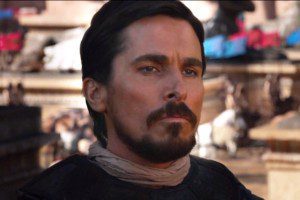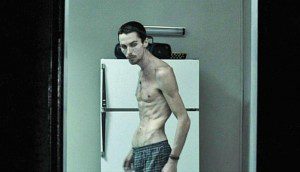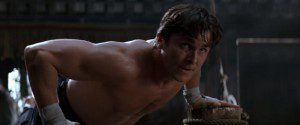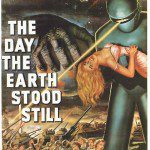 Christian Bale, who plays Moses in the upcoming Ridley Scott epic Exodus: Gods and Kings, doesn’t seem to like his character very much. He recently told a group of reporters, “I think the man was likely schizophrenic and was one of the most barbaric individuals that I ever read about in my life.”
Christian Bale, who plays Moses in the upcoming Ridley Scott epic Exodus: Gods and Kings, doesn’t seem to like his character very much. He recently told a group of reporters, “I think the man was likely schizophrenic and was one of the most barbaric individuals that I ever read about in my life.”
Bale’s comments generated concern from some sectors of the Christian community. Faith Driven Consumer, pairing Bale’s comments with some remarks made by Scott on crafting a more naturalistic explanation for the Red Sea’s parting, believes that Exodus “is heading down the same road as Noah.”
That may or may not be true. And as far as I’m concerned, that may or may not be a bad thing. But for me, Bale’s statements—and the resulting backlash—trigger a couple of questions: One, Should actors in faith-centric movies be believers themselves? And two, how difficult is it for us, the moviegoer, to separate an actor from the character he or she plays?
Now, the first question may seem to some to be a non-issue to some. Actors are paid to act, after all. We do not expect Chris Pratt to have experience with aliens to take part in Guardians of the Galaxy. Chad Allen, who gave a stirring performance as missionary Nate Saint in the Christian movie End of the Spear, is gay and in fact participated in a gay rights march that wound up on the steps of Focus on the Family. If we required actors to share lots of similarities with the characters they play, our movies would be much worse and our actors much weirder.
But when you think about it, the question isn’t so cut-and-dry. I know of many a Christian producer who feels it’s critical to have Christian actors: They say that you can’t make a truly God-honoring movie without complete spiritual buy-in from the folks making it. Sure, that doesn’t always result in great art, but I get where they’re coming from. You kinda want people in ministry to, y’know, believe in what they’re saying. Is a movie so different? And even though Exodus: Gods and Kings isn’t designed to convert anyone, the fact the story itself is a story of faith—a story embraced by major religions and billions of people—begs, I think, at least some consideration. Its makers have certainly been petitioning faith-based moviegoers to give the thing a chance.
 And then we’ve got to consider Bale’s own adherence to his craft, given that he’s pretty notorious for sinking deeply into his characters’ psyches.
And then we’ve got to consider Bale’s own adherence to his craft, given that he’s pretty notorious for sinking deeply into his characters’ psyches.
Bale, who normally weighs around 185 pounds, dropped about a third of that to play the insomniac Travor Resnick in The Machinist (pictured to the right)—then immediately gained it all back and then some for Batman Begins (below). While he doesn’t utterly lose himself in a part like Daniel Day-Lewis (who sent texts as “Abraham Lincoln” when filming Lincoln), the line between Bale and his character does blur at times, it would seem.
A few years back, someone recorded Bale on the set of Terminator: Salvation unleashing an abusive tirade at a poor stagehand that accidentally interrupted a scene. “It wouldn’t have happened if we hadn’t been playing that scene … between (character) John Connor and his wife, which is probably the most intense one in the movie,” he told GQ. “I’d definitely say that that guy who was yelling was at least half John Connor, and the rest was Christian Bale.”
When you’re talking about such a wholesale commitment to character, maybe it’s not so outlandish to hope that someone playing a part so predicated on deep faith would understand, on some level, the power of that faith. And while I can’t say what Bale things about religion, he does admit that his knowledge of Moses was pretty spotty. So maybe that’s not so encouraging.
But on the other hand, Bale coming into the role without a lot of preconceived notions might be a good thing. And remember, it’s not like Bale was a big fan of Batman, either: “He’s got all sorts of issues,” he said of the superhero. “He’s just as twisted and messed-up as the villains he’s fighting, and that’s part of the beauty of the whole story.”
 That Bale didn’t revere Batman growing up and understood the hero’s flaws helped, I think, create a more complex, more resonant character. And perhaps the same will happen with Moses. Bale’s read on the guy could potentially translate into a truly remarkable, unique depiction of Moses—something that, unpinned to our Sunday school expectations of the character, might help us see the story in a new and even better way.
That Bale didn’t revere Batman growing up and understood the hero’s flaws helped, I think, create a more complex, more resonant character. And perhaps the same will happen with Moses. Bale’s read on the guy could potentially translate into a truly remarkable, unique depiction of Moses—something that, unpinned to our Sunday school expectations of the character, might help us see the story in a new and even better way.
But if Bale’s Moses does work, will Christians give it the credit it is due? It can be difficult to separate an actor’s on-screen work from their public statements. I know folks who refuse to watch any movie with Jane Fonda in it: Her visit to North Vietnam in 1972 is still raw in their memory. There are those who’ll never watch a Mel Gibson film the same way again, given his own very public missteps. Some Christians, I’m sure, who believe End of the Spear is tainted by Allen’s activism.
Should actors in faith-centric movies be believers themselves? Not necessarily, I’d say. And I hope that, as movie-goers, we can set aside we know about an actor—any actor—when we watch them bring a character to life. And when it comes to Exodus: Gods and Kings, I hope that the larger Christian community will withhold judgment until we have a chance to see the movie.













